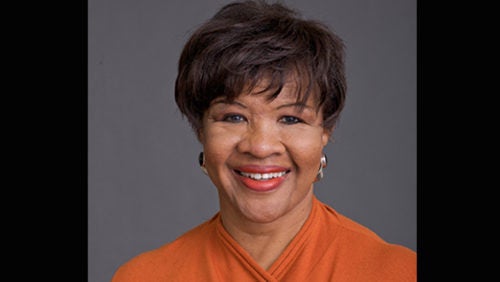Financial Crises and Court Appointments: Have We Learned Nothing? A Conversation with Professor Emma Coleman Jordan
September 24, 2018

Professor Emma Coleman Jordan hosts a conference, "Ten Years After the Financial Crisis," at Georgetown Law September 28.
They say the more things change, the more they stay the same. Whether that’s the case concerning the national economy will be the topic of a day-long conference at Georgetown Law on Friday, September 28. “Ten Years After the Financial Crisis: Closing Loopholes and Avoiding Blindspots,” with a keynote by Sheila Bair, former chair of the FDIC, will attempt to answer the question of whether the economy is headed for another fall.
The genesis of the conference came from a conversation between Bair and Professor Emma Coleman Jordan, an expert on economic justice in legal theory, financial services and civil rights. The two agreed that there was an emerging problem of “financial crisis amnesia,” Jordan said.
It’s fitting, then, that Bair’s keynote will be called “Forgotten Lessons of the Financial Crisis.”
“Developments over the last year and a half suggest that banking regulators have forgotten about the disaster of deregulation,” said Jordan. “We hope to raise public awareness that we’re entering a period in which the problems we thought were solved have not been solved.”
Some of the field’s foremost authorities will speak at the event, including John C. Bogle, who founded the Vanguard Group and will appear in a videotaped interview with Jordan.
“He adds some amazing insights from his 67 years in the financial services field,” said Jordan of Bogle, a revered figure in the world of investment. “He shares my concern that there as an ethical problem at the core of the 2008 failure.”
That problem, as Bogle and Jordan see it, is that those working in the financial services sector have a sense of entitlement to excess compensation. That excess rewards them for making risky investment decisions, which ultimately harm investors.
The conference will also address the effects of the financial crisis on the poor and people of color. Professor Anthony Cook, who teaches a new course called “Race, Inequality and Progressive Politics: Voting Rights in America” will moderate a panel on persistent and pervasive predation.
The dangers of speculation and creating another bubble, Cook said, have particularly serious ramifications “for the more marginalized. It allows the top of the hierarchy to benefit disproportionately from the pain and suffering of others.”
He added, “Until we come to grips with that as a nation and impose restrictions on the ways markets can be manipulated, then inequality will continue to widen and grow.”
Jordan’s interest in this field began while she was working at Bank of America headquarters as an undergraduate, encoding checks. Later, as a teaching fellow at Stanford Law School, she taught commercial law, which included banking rules. She left a teaching position at the University of California, Davis to work as a White House Fellow in 1980.
Not long after, she realized the bank was holding her checks from UC Davis, sometimes for a week or more, before honoring them. She did some research and learned there were no regulations concerning the practice.
“My husband and I were a two-paycheck family,” she recalled drily, “but when half of the money is being held, that’s not convenient.”
Jordan ultimately wrote the 1981 California statute regulating bank check holding practices. The federal government passed similar legislation in 1987. She also was co-counsel on class action suits challenging stop-payment fees.
In the news
Jordan has found herself in the media spotlight again in 2018 owing to her role as counsel to Anita Hill during Clarence Thomas’s 1991 Supreme Court confirmation hearings. She sees many parallels to the situation of current court nominee Brett Kavanaugh, who has been accused by Christine Blasey Ford of a violent attempted sexual assault while they were teenagers at a party in suburban Washington, D.C.
“Some things haven’t changed,” said Jordan, citing Sen. Orrin Hatch’s comments that Blasey Ford is “mixed up” about what happened that night. “He’s reached a conclusion already. That’s very troubling to me. To have someone who has a vote on an appointment to the highest court in our land making a prejudgment in such a gendered way — has he learned nothing in 27 years?”
Hatch (R-Utah) was one of the senators who grilled Hill during the 1991 hearings.
“I believe that the country deserves better than that from our leaders,” said Jordan. “But Washington is a distorting bubble where it’s all about power. The human element is often diminished.”